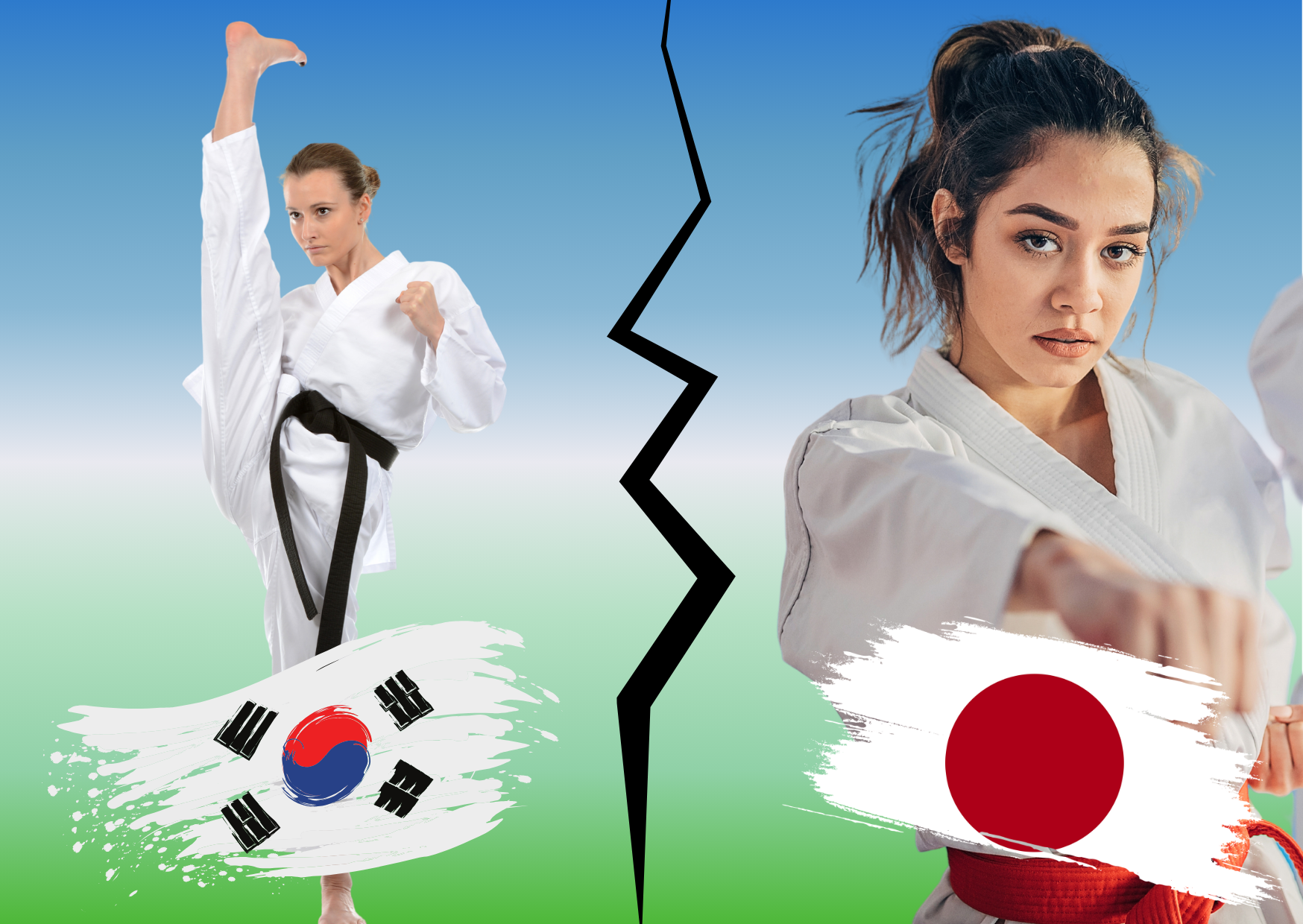
Recently, more people have recognised the benefits of martial arts, and there has been a rise in the number of schools. However, choosing which style to train can be challenging when each has distinct techniques and benefits.
Therefore, to help you choose the right training, let’s compare two popular styles on the Sunshine Coast: Taekwondo and Karate.
Karate vs Taekwondo: Origins and Philosophy
Both martial arts have similar origins. Karate was formed in Japan in the 1930s and Taekwondo in Korea in the 1950s. Both were formed from traditional martial arts from that region and share an underlying philosophy that promotes .discipline, respect and fitness.
Karate vs Taekwondo: Techniques
Both styles use a combination of punches, blocks, kicks and takedowns. Taekwondo emphasises speed and kicks, using more dynamic jumping and spinning movements. In comparison, Karate focuses more on hand movements and counterattacks.
Karate vs Taekwondo Contact:
Taekwondo sparring is typically conducted as full contact for individuals aged 15 and above, with protective guards used to prevent injury to body parts. Karate fights are typically conducted without physical contact.
Taekwondo vs Karate Sport:
One difference between taekwondo and karate is that taekwondo is an Olympic sport, while karate is not. This means that taekwondo receives more funding from the government to improve the sport, and some schools, like ours, offer pathways for students to represent their country at an elite level.
Karate vs. Taekwondo Training For Fitness
When it comes to improving physical fitness, both Karate and Taekwondo offer a great workout. Both require you to use your entire body for various exercises and techniques. Both offer a range of drills and exercises that help you build strength, flexibility, agility, balance, coordination and cardiovascular health. Therefore, whichever style you choose will give you a great workout.
Who Should Learn Taekwondo?
- People Who Are Interested in Learning Powerful and dynamic Kicking
- People Who Prefer Contact Sparring
- People Who Would Like The Opportunity to Represent Their Country at International Events
Who Should Learn Karate?
- People Who Prefer to Focus More On Punching
- People Who Prefer Non Contact Sparring
Conclusion:
The choice between the two depends on individual preferences and goals, but the culture created by the coaches has the most significant impact. We have made efforts to establish an inclusive culture to support the growth of all our students through martial arts training. We recommend visiting a few schools and evaluating which works best with your interests and needs to help you make your decision.
New Member Special:
2 Trial Lessons Only $10
+ FREE Uniform if you Join
(Valued at $91)
All classes have limited space, offer subject to availability, new members only.
